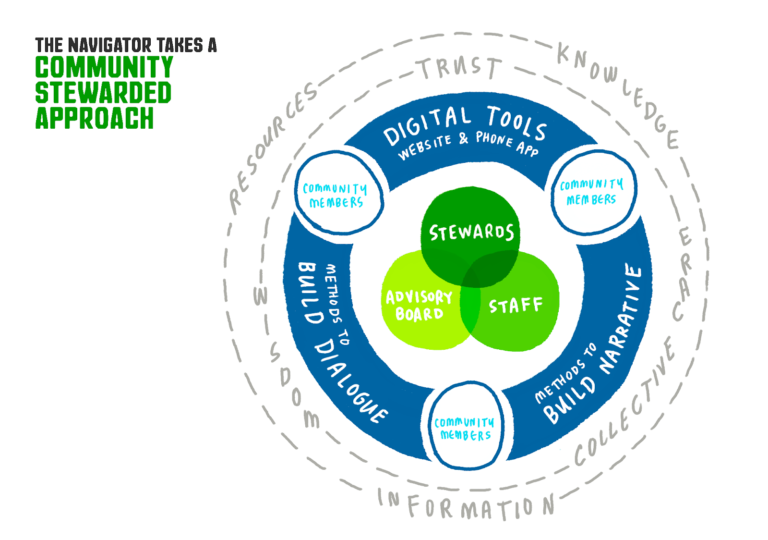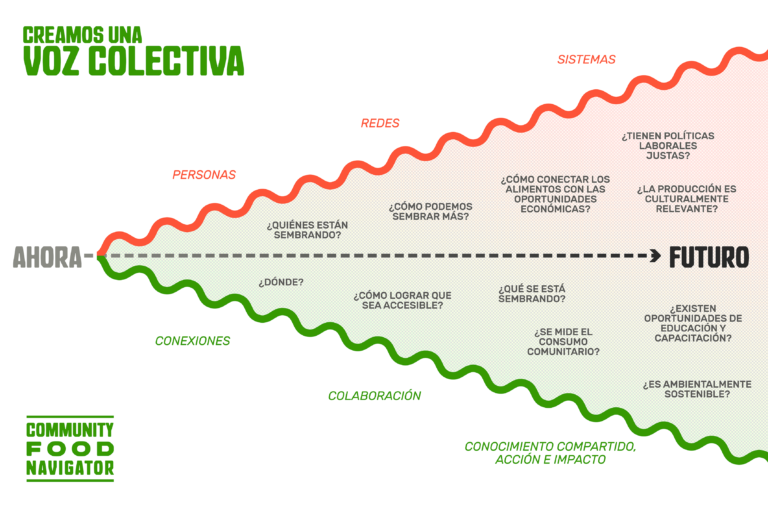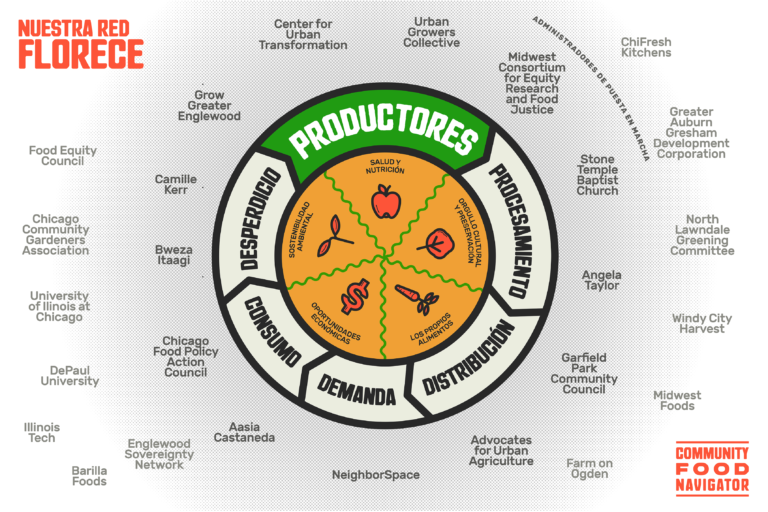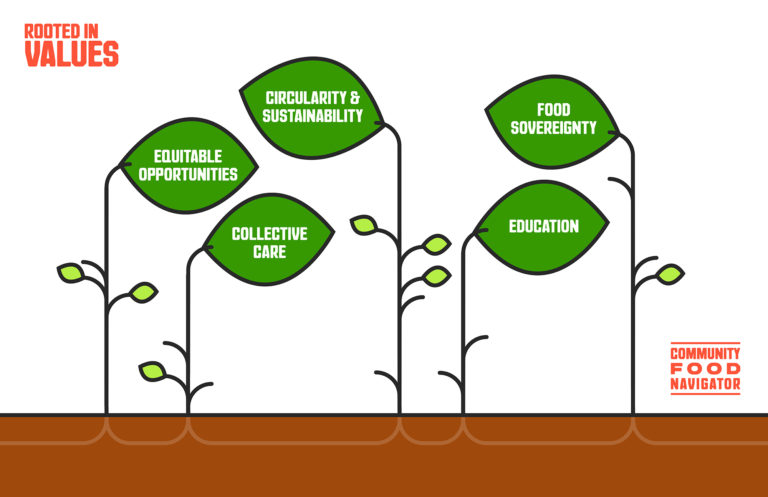
RECURSOS
Community Food Navigator supports the Black, Brown, and Indigenous growers, producers, educators, and organizers in Chicago’s food ecosystem working towards widespread food sovereignty.
We are continually developing a library of tools and resources to support you in this work. Please use and distribute these resources as you need. Get in touch with us if you have more information to share!
Jump ahead to: Graphics | Publications and Presentations | Términos frecuentes | Readings and Articles
Graphics
©2023 Navigator IP Holdings, LLC
Publicaciones y presentaciones
A comienzos de 2021, The Community Food Navigator mantuvo una serie de conversaciones y talleres de trabajo diseñados y facilitados por ChiByDesign and focused on growers and food producers either led by or serving Black, Brown, and Indigenous communities. The report highlights the unmet needs and opportunities for community-led food systems. Gracias a todos los que participaron en los talleres.
The Community Food Navigator is grateful to have participated in the 17th Annual Chicago Food Justice Summit hosted by the Chicago Food Policy Action Council. We provided an update on the Community Food Navigator, including the launch of our website and a sneak peek at some of the digital tools we’re developing. The video is available to watch:
Términos frecuentes
- Socios comunitarios: Referencia general a todos los que participaron en los talleres de trabajo y las entrevistas. Esto incluye a agricultores urbanos y productores de alimentos, líderes de pequeñas empresas e instituciones sociales enfocados en el desarrollo económico y comunitario, personas que trabajan en política, servicios humanos, seguridad alimentaria, salud pública, el ámbito académico, asistencia mutua, jardines comunitarios y jóvenes de la escuela secundaria que participan en programas de capacitación agrícola.
- Agricultor: cualquier persona que produzca alimentos frescos locales.
- Soberanía alimentaria: Food sovereignty is a food system in which the people who produce, distribute, and consume food also control its production, distribution, and governance. This stands in contrast to the present-day corporate food system, in which corporations and market institutions dominate the global food system. Food sovereignty can be achieved through equitable and just decentralization and deprivatization of wealth and resources; decommodification of food; localization of food systems; greater autonomy for Black, Brown, and Indigenous decision-making.
- Defensores comunitarios de alimentos: Legisladores, defensores de salud pública y/o agricultura urbana, incluido el espacio comunitario, la justicia ambiental y las políticas equitativas de desarrollo comunitario.
- Reparaciones: The making of amends for a wrong that has been done. Reparations for victims of human rights violations are meant to recognize and address the harms suffered and acknowledge wrongdoing. Financial compensation—or the payment money—is only one of many different types of material reparations that can be provided to victims. Other types include restoring civil and political rights, erasing unfair criminal convictions, physical rehabilitation, and granting access to land, health care, or education.
- Alfabetización alimentaria: Understanding the impact of your food choices on your health, the environment, and our economy—and understanding that these impacts are not experienced equitably. Building upon existing traditional, cultural, and indigenous knowledge. Acknowledging and addressing generational gaps in knowledge due to lack of access and prevalence of healthy food, facilities to learn how to prepare and consume food, cultural support / reinforcement to choose such foods, and early education to break negative cycles.
- Sustentabilidad/Desarrollo sustentable: Sustainability focuses on meeting the needs of the present without compromising the ability of future generations to meet their own needs. The concept of sustainability is composed of three pillars: economic, environmental, and social—also known informally as profits, planet, and people.
- Circularidad/Economías circular: Un sistema regenerativo en el cual se minimiza el ingreso y desperdicio de recursos, las emisiones y la pérdida de energía a través de la desaceleración, el cierre y el estrechamiento de los circuitos de materiales y energía. Esto puede lograrse a través del diseño de larga duración, mantenimiento, reparación, reutilización, remanufactura, renovación y reciclado.
- Biodinámica: Enfoque holístico, ecológico y ético de la agricultura, la jardinería, los alimentos y la nutrición.
Lecturas, historias y artículos
- Chicago Reader: “A Revolutionary Act” by Jennifer Bamberg, Kyel Brooks, Samantha Callender, Susan Carlotta Ellis, Sarah Conway, and City Bureau – October 13, 2021
- HEAL Food Alliance and Union of Concerned Scientists: “Leveling the Fields: Opportunities for Black People, Indigenous People, and Other People of Color” – May 2020.
